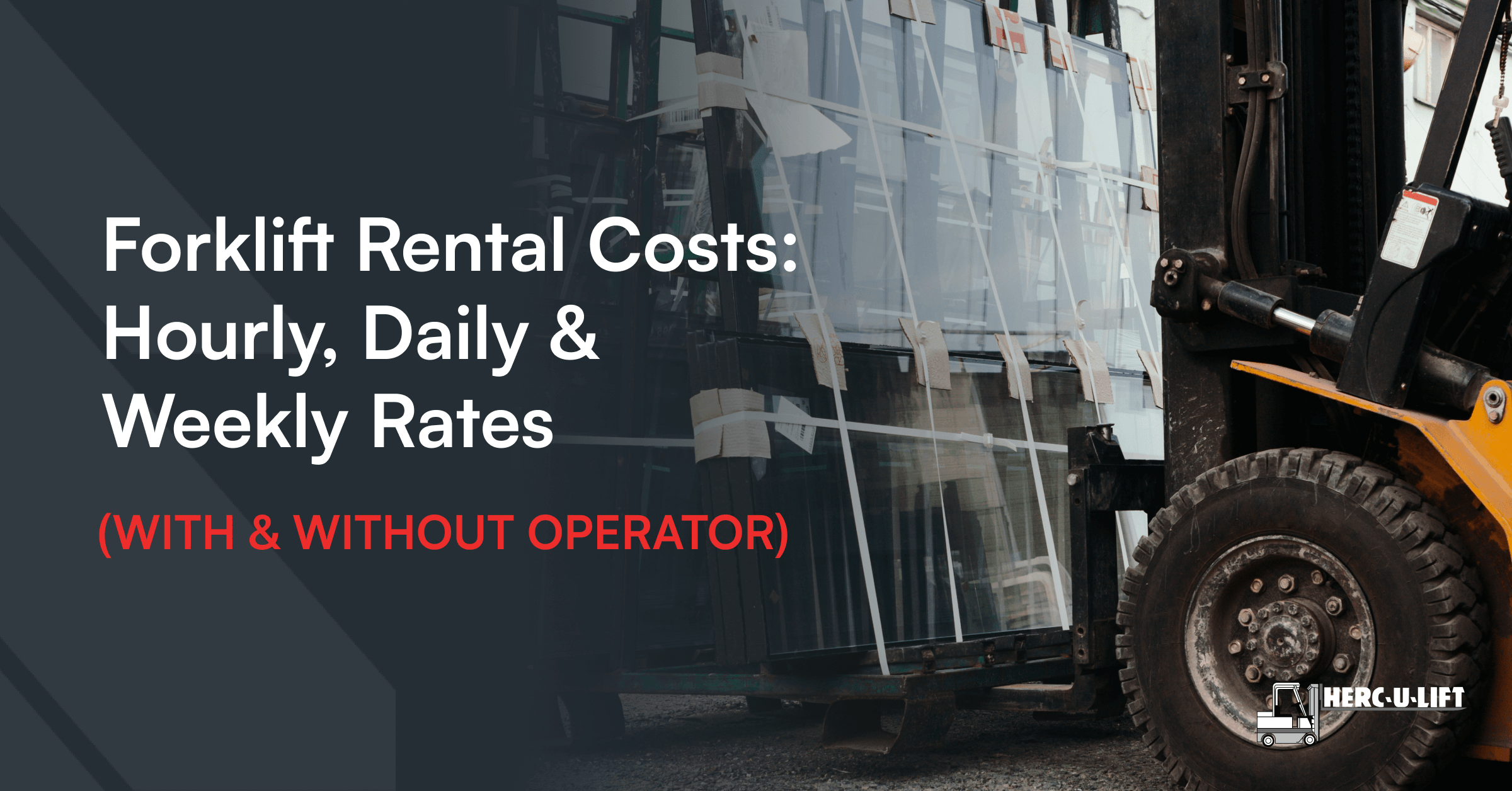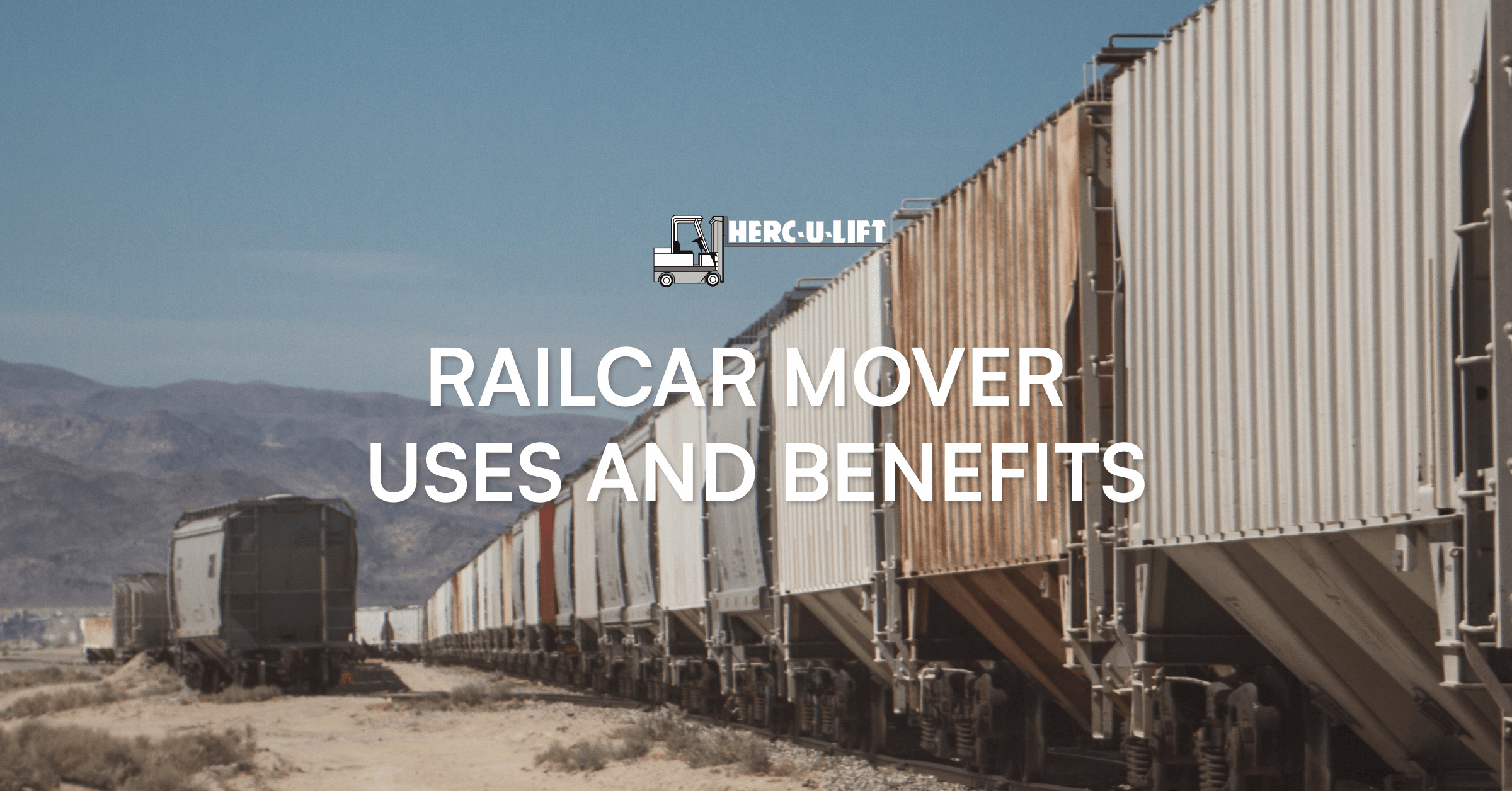Forklift Rental Costs Explained: Hourly, Daily, and Weekly Rates (With and Without Operators)

If you’ve ever looked into renting a forklift, you probably noticed that prices can be all over the place. One rental yard might quote $180 a day, while another down the road may charge $400. What gives?
The truth is, forklift rental costs vary for several reasons. The size, type, lifting capacity, and how long you’ll need it all affect pricing. Your location and whether or not you want an operator included also play a role. For example, renting a forklift in the middle of Los Angeles is NOT going to cost the same as renting one in a small Iowa town.
In this guide, we’ll break down forklift rental pricing into hourly, daily, and weekly rates. We also address the value of operator-included rentals, plus some practical cost-saving tips.
Understanding Forklift Rentals
Before we dive into the numbers, let’s set the stage: different forklifts serve different purposes. The type you’ll need for your project will heavily influence the rental cost.
Types of Forklifts
Some of the most common forklifts include:
When choosing a forklift, you also need to pick between electric, diesel, or LPG units. Each option has its own strengths, costs, and ideal work environments.
Renting vs. Buying
So, when does it make sense to rent forklifts? Renting is practical for companies with short-term projects. It allows businesses to use heavy equipment without long-term investment. It is also ideal for organizations working under budget constraints, where purchasing is not immediately feasible. In addition, renting is the logical choice when forklifts are needed only for occasional, specialized applications.
On the other hand, purchasing brings greater value for businesses that require forklifts daily and on a long-term basis. Ownership spreads costs over years of use and avoids the ongoing expense of repeated rentals.
Benefits of Hiring with an Operator
Hiring with an operator means you’re not just paying for the machine. You’re also paying for the skills, licensing, and insurance that come with it. This ensures compliance and takes liability off your shoulder. This can be beneficial, especially if your staff do not have equipment safety training or forklift certification.
Forklift Rental Costs
Forklift rental pricing isn’t one-size-fits-all. Here’s how forklift rental costs stack up by the week, day, and hour. Plus, we examine how location factors into your final bill.
For example, rough terrain units, high-reach configurations, and heavy-capacity internal combustion models command higher weekly rates. This is mainly due to larger frames, more powerful drivetrains, and the added wear and transport complexity associated with outdoor and construction use.
| Forklift Type | Weekly Rate Range |
|---|---|
| Electric forklifts | $965 to $1,350 |
| Internal combustion forklifts (diesel/LPG) | $965 to $9,420 |
| Rough Terrain Forklift | $363 – $919 |
| Scissor Lift (Electric) | $154 – $358 |
| Scissor Lift (Rough Terrain) | $292 – $473 |
| Rough terrain forklifts | $1,815 to $4,595 |
Keep in mind: most rental companies apply minimum charges. Some may bill you for at least 4 hours, even if you only used the forklift for 90 minutes.
- $55 to $115 per hour
- $450 to $900 per day
- $2,250 to $4,500 per week
The obvious advantage is you won’t need to stress over licenses, insurance coverage, or training. For short-term projects or for organizations that do not employ certified staff, hiring with an operator is usually the most cost-effective solution.
To find forklift rental providers in your area, you can:
- Check Google Business listings for “forklift rental near me.”
- Call local equipment dealers. In addition to selling, these businesses may also rent out forklifts.
- General equipment rental companies also offer forklifts, in addition to other heavy machinery.
Again, proximity matters because delivery costs add up quickly. So, expect to pay extra if the rental company has to truck a forklift 60 miles to your site.
- Labor rates: Typically $30 to $60 per hour just for the operator (added to machine cost).
- Insurance: Covered by the rental company when you hire an operator.
- Safety: Professional operators reduce the risk of accidents, which can get expensive fast.
This setup is common on construction sites and event setups. It is also ideal for short-term projects where it doesn’t make sense to certify staff for a one-day forklift gig.
Factors That Affect Forklift Rental Prices
Several variables push forklift rental rates up or down.
Machine capacity & lift height.
Larger and higher-reaching forklifts cost more than standard models. Expect a 5,000-lb forklift to be cheaper than a 15,000-lb beast.Power source
Electric forklifts tend to have higher upfront rental costs. Diesel and LPG forklifts are cheaper but often involve higher fuel expenses.Rental period length
Longer rentals typically result in lower daily rates. This makes weekly or monthly rentals more cost-effective than daily rentals.Transport & delivery fees
Transport and delivery fees can add substantially to the bill, especially if the rental yard is far from the job site.Attachments
Forklift attachments such as extensions, clamps, or rotators all add to the rental fee.Location & demand
Rates vary between regions depending on availability and competition.Cost-Saving Tips
Renting forklifts doesn’t have to break the bank. A few smart moves can help you save hundreds as you rent a machine.
For example, booking in advance and avoiding peak seasons can lead to lower rates. Demand spikes during construction season and end-of-the-year warehouse rushes often increase rental fees.
Also, compare multiple rental companies before accepting an offer. Prices can vary dramatically between providers. So, take your time and explore several options.
Longer rentals generally offer better value. A weekly rental may cost less than paying for 4 to 5 separate days. Planning logistics carefully can also reduce costs, since transport and delivery fees can quickly add up.
Finally, avoid last-minute bookings. Rush delivery fees can be extremely expensive.


Safety, Licensing & Regulations
Safety and compliance must be prioritized in any forklift rental decision. In the United States, OSHA requires forklift operators to have certification. Similar requirements apply in other regions. Operating without certification not only poses safety risks. It can also invalidate insurance coverage, leaving the renting organization liable for damages. With a licensed operator, risks are reduced while tasks are completed efficiently and safely.


Final Advice
At the end of the day, forklifts are like power tools. They’re great when you have the right one or they can be expensive headaches when you don’t. So, always get written quotes from at least 3 suppliers before signing. That way, you can compare rates and avoid unexpected charges. If you’re ready to rent, check out our forklift rental services to get started.




